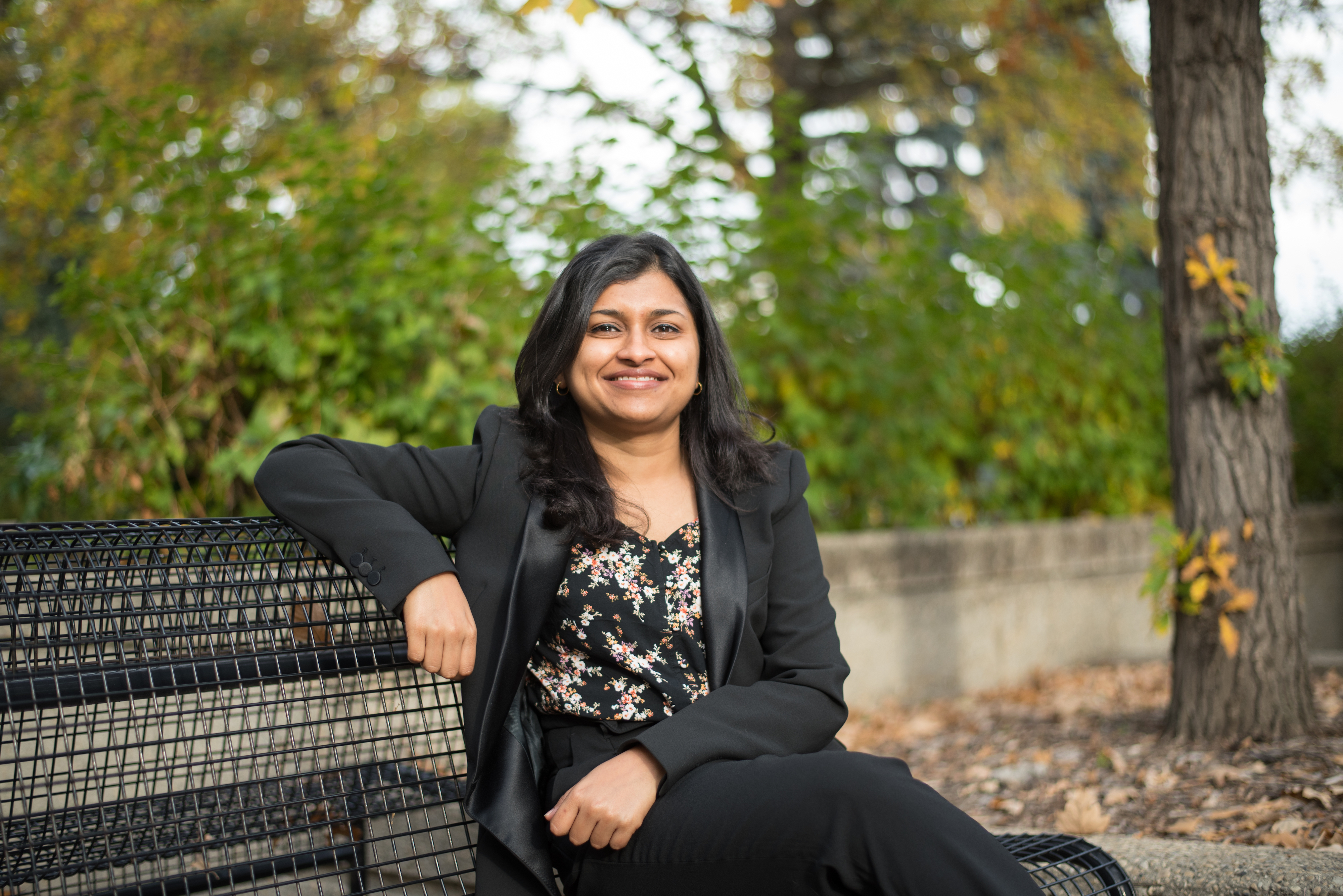Anisha Jain unpacks the complex world of surrogacy in Canada and India
Benjamin Lof - 31 October 2023

Anisha Jain, a master's student at the University of Alberta Faculty of Law, already had a lot of life experience when she decided to do a graduate degree researching surrogacy laws in India and Canada.
In India, Jain had finished law school, become an associate, completed an earlier LLM via distance education, worked a job writing legal content for a research company, and started an online company of her own.
During this period, she was hearing through friends and family members about people who were considering surrogacy as a birth option and began reading widely about its history in India and its many legal and ethical issues.
“I felt like I had finally found the hook for my legal career. Very early on, I decided that if I am going to study, I am going to use my education to advance the interests of women in some capacity.”
A legal framework for commercial surrogacy
With non-traditional families on the rise and an increasing number of people suffering from infertility, surrogacy is becoming a more prominent birthing option, says Jain. It gives infertile couples, 2SLGBTQI+ couples and single people a chance to have a genetically related child.
Surrogacy can either be ‘altruistic’ or ‘commercial’ (surrogacy which is compensated), the latter being the more controversial form due to its potential to commodify reproduction and exploit surrogates, and currently against the law in both Canada and India.
“When laws of their own country do not favour surrogacy, intended parents travel abroad to countries where surrogacy is legally permitted or to where it operates with little or no regulation,” says Jain. “The chances of exploitation of surrogates are higher in the latter.”
Surrogacy laws are mostly based on concerns around harm and exploitation that were raised in the early days of assisted reproduction technologies and do not grasp their full potential, says Jain.
She argues that, instead of prohibiting commercial surrogacy in totality, law should facilitate these arrangements by having the necessary legal safeguards in place and enable family building.
“The right legal safeguards in my view would greatly minimize the potential for exploitation,” she says, adding that now is the time to regulate and permit paid surrogacy.
“First, we need to recognise [and compensate] the time, effort and risk a surrogate goes through in surrogacy,” says Jain. “Second, emerging empirical scholarship from developed countries [such as the U.S. and U.K.] suggests that overall the experience of surrogacy is positive for all parties.”
As for developing countries, she notes that before it was outlawed in India, commercial surrogacy had become a mode of survival for surrogates, for whom a pregnancy would earn equivalent to 8-10 years’ pay from their usual jobs.
Jain’s thesis argues for the decriminalization and regulation of commercial surrogacy. It will include policy recommendations for a regulated commercial surrogacy legal framework for India, based on lessons taken from the Indian and Canadian experience.
Prof. Erin Nelson and the Faculty of Law welcome
Jain was drawn to the Faculty of Law by the prospect of working with Professor Erin Nelson, an expert in health care ethics whose book, Law, Policy and Reproductive Autonomy (Hart, 2013), explores theoretical and practical issues in reproductive decision-making.
“I knew that I wanted to work under her because I was reading so much of her work, and her view of surrogacy and how it should be regulated resonated with me,” says Jain.
“I come from a small town in India, and even the thought of working with someone whose books and articles I was reading… was quite frankly unimaginable for me.”
Jain credits Nelson and the expertise and seminars of many other faculty members with making her a better writer and researcher.
“Anisha’s work provides a really valuable perspective on the realities of surrogacy practice in India’s unregulated system,” says Nelson.
“Her insights help to shed light on the dangers of unregulated surrogacy, particularly in a context where surrogates have limited opportunities to earn an income.”
Jain also took advantage of the LLM program’s experiential learning opportunities, volunteering with Student Legal Services of Edmonton and the Edmonton Community Legal Centre, which helped clarify the direction she’ll take her legal career in after graduation.
She often refers to her LLM experience as “a life journey, not just an academic journey,” as she left home for the first time and came to Edmonton shortly before the Covid-19 pandemic, not knowing a single person.
Her arrival was a softer landing thanks to a warm reception at the Faculty of Law.
“The office staff has always been so helpful and supportive,” she says. “From helping me figure out which winter coat to buy to helping with more serious administrative work, they’ve always made me feel so welcomed.”
When she was having trouble finding her feet in those early days, Jain also came to know Counselling and Clinical Services on campus as an extremely helpful resource that she could count on.
“To anyone who finds themselves struggling with school, life, finding the balance, I highly recommend taking their help.”
Jain is aiming to graduate in December and will continue her work advocating for a regulated commercial surrogacy system that both protects and fairly compensates women.